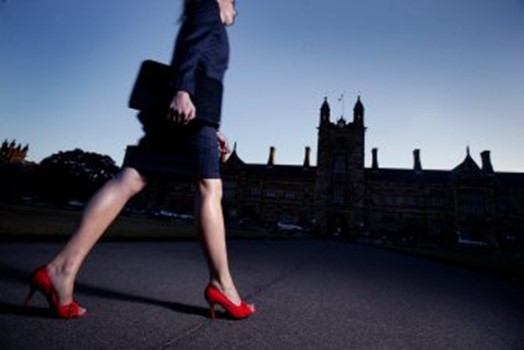The education of Australian women has come a long way since they were first able to get access to the country’s universities in the 1880s. By the 1970s, one in three students were female and, these days, they make up more than half.
Now, one in two women aged 25 to 34 has a bachelor’s degree, compared with just over one in three men in the same age group. As data revealed by the Herald shows, girls are significantly outperforming boys in school-leaving exams and during uni, too.
Australian women are among the most educated in the world.
But this begs the question: what’s next? Why is it men still dominate across boardrooms and offices and parliament and, on average, out-earn female graduates by about $750,000 over their lifetime?
The gender pay gap kicks in quickly, says Sydney University associate professor Elizabeth Hill, the deputy director of the Gender Equality in Working Life Research Initiative, due to various factors ranging from baked-in discrimination to lower pay levels in female-dominated sectors.
Executive director of think tank Per Capita Emma Dawson says Australia is ranked equal first in the world for women’s education in the World Economic Forum Global Gender Gap Index, and 70th for financial empowerment.
“It’s not our fault, it’s structural,” she says, citing a tax system more generous to single rather than double-income families which creates a disincentive for women to go back to work more than three days a week.
But things are changing. At the federal election, professional female voters were a powerful voice; demographer John Black describes them as the “largest single occupation group”. Professional women, running as teal independents, were elected in once-safe Liberal seats.
Women are now dominating the better-paid professional university degrees, Black says. “It’s been taking place over quite some time, and it reached a political tipping point at the last election,” he says.
“I think [the teal MPs are going] to make quite a mark at the political level in federal parliament, and I think we’re likely to see growing numbers. This is not going to stop.”
By Jordan Baker
Jordan Baker is Chief Reporter of The Sydney Morning Herald.


